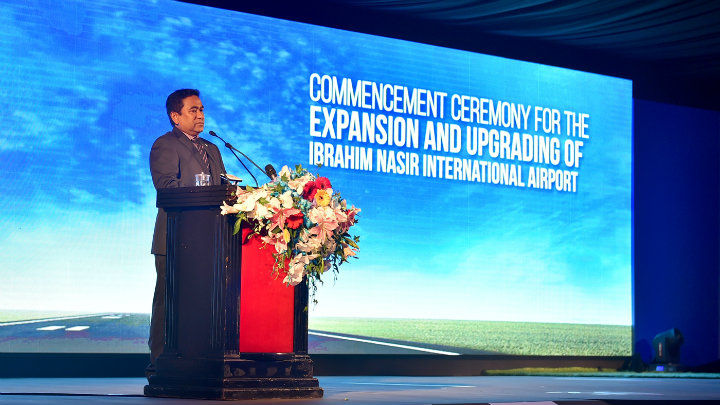Maldives airport expansion to cost US$800m
President Abdulla Yameen unveiled Wednesday a US$800million plan to expand the Maldives’ main airport. The project, to be financed entirely by loans, was risky, but its returns would be transformational, he claimed.

08 Apr 2016, 09:00
President Abdulla Yameen unveiled Wednesday a US$800million plan to expand the Maldives’ main airport. The project, to be financed entirely by loans, was risky, he said, but claimed its returns would be transformational.
“If we take loans for projects, there is no doubt that Maldivians and their unborn offspring will have to shoulder a large debt, but if it is done through soft loans, our airport will give us the returns to pay back that loan,” he said at the project’s launching ceremony.
“Parents will think, yes there is a debt, but I wish we had more children to fill jobs at the airport. This is what transformational change looks like, and we have dared to take the risk.”
The government has only secured half of the cost – a US$373million loan from Chinese EXIM Bank – and is in talks with the Abu Dhabi Fund for Development, Islamic Development Bank and Saudi Arabia for finances.
Become a member
Get full access to our archive and personalise your experience.
Already a member?
Discussion
No comments yet. Be the first to share your thoughts!
No comments yet. Be the first to join the conversation!
Join the Conversation
Sign in to share your thoughts under an alias and take part in the discussion. Independent journalism thrives on open, respectful debate — your voice matters.




